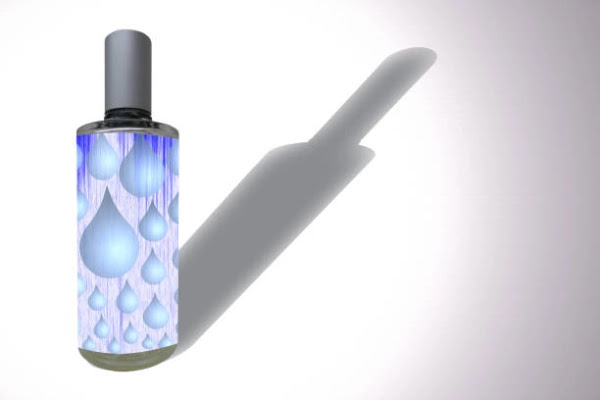Illuminating Armor
Exploring the Relationship Between Vitamin C Serum and UV Protection
Introduction
UV radiation from the sun poses a significant threat to skin
health, leading to premature aging, hyperpigmentation, and even skin cancer.
While sunscreen is a vital tool in protecting against UV damage, emerging
research suggests that Vitamin C serum may also play a role in enhancing UV
protection. In this exploration, we delve into the intricate relationship
between Vitamin C serum and UV protection, elucidating its mechanisms of
action, clinical efficacy, and practical recommendations for safeguarding the
skin against sun damage.
- Antioxidant Defense Against UV-Induced
Damage: UV radiation generates free radicals in the skin, causing
oxidative stress and cellular damage. Vitamin C serum offers potent
antioxidant protection against UV-induced damage, neutralizing free
radicals and preserving skin health. Ascorbic acid, the active form of
Vitamin C, scavenges reactive oxygen species (ROS) and stabilizes lipid
peroxidation, preventing cellular damage and maintaining optimal skin
function. By reducing oxidative stress, Vitamin C serum helps to protect
against the signs of UV damage, such as fine lines, wrinkles, and
hyperpigmentation, and promotes overall skin health.
- Enhancement of Sunscreen Efficacy:
Sunscreen is a cornerstone of sun protection, but emerging research
suggests that Vitamin C serum may enhance its efficacy. Studies have shown
that Vitamin C can act synergistically with sunscreen to provide greater
protection against UV radiation. Ascorbic acid helps to stabilize and
regenerate other antioxidants, such as Vitamin E, which are present in
sunscreen formulations, enhancing their ability to neutralize free
radicals and prevent UV-induced damage. Additionally, Vitamin C may help
to boost the skin's natural defense mechanisms, such as DNA repair and
immune response, further enhancing its ability to withstand UV exposure.
- Reduction of UV-Induced Inflammation:
UV radiation not only damages skin cells but also triggers inflammation,
leading to redness, swelling, and discomfort. Vitamin C serum possesses
anti-inflammatory properties that help to calm inflammation and reduce the
risk of UV-induced damage. Ascorbic acid inhibits the production of
pro-inflammatory cytokines and mediators, such as interleukin-6 (IL-6) and
tumor necrosis factor-alpha (TNF-α), which contribute to skin inflammation
and barrier dysfunction. By suppressing inflammation, Vitamin C serum
helps to minimize the adverse effects of UV exposure and promote a
healthier, more resilient complexion.
- Repair and Recovery from UV Damage: Despite
preventive measures, UV radiation can still cause damage to the skin,
leading to sunburn, photoaging, and DNA mutations. Vitamin C serum helps
to repair and recover from UV damage by promoting cellular repair
mechanisms and enhancing skin regeneration. Ascorbic acid stimulates the
expression of genes involved in DNA repair, such as p53 and ATM, which
help to detect and correct DNA damage caused by UV radiation.
Additionally, Vitamin C supports collagen synthesis and skin renewal,
aiding in the repair of sun-damaged skin and promoting a smoother, more
youthful complexion.
- Clinical Efficacy and Practical
Recommendations: Clinical studies have demonstrated the efficacy of
Vitamin C serum in enhancing UV protection and promoting overall skin
health. Regular use of Vitamin C serum has been shown to reduce the risk
of UV-induced damage, including sunburn, photoaging, and
hyperpigmentation. To maximize the benefits of Vitamin C serum for UV
protection, choose a high-quality formulation with stable Vitamin C derivatives,
such as ascorbic acid or sodium ascorbyl phosphate, at concentrations of
around 10% to 20%. Apply Vitamin C serum to clean, dry skin once or twice
daily, followed by sunscreen during the day to enhance UV protection.
Additionally, incorporate other sun-protective measures, such as wearing protective clothing and seeking shade during peak UV hours, to further
safeguard the skin against sun damage.
Conclusion
Vitamin C serum offers a multifaceted approach to UV
protection, thanks to its antioxidant, anti-inflammatory, and reparative
properties. By incorporating Vitamin C serum into your skincare routine, you
can enhance the efficacy of sunscreen, reduce the risk of UV-induced damage,
and promote overall skin health. With consistent use and proper sun-protective
measures, individuals can harness the illuminating armor of Vitamin C serum to
safeguard their skin against the harmful effects of UV radiation and enjoy a
healthier, more radiant complexion for years to come.
